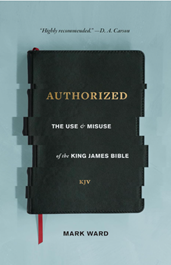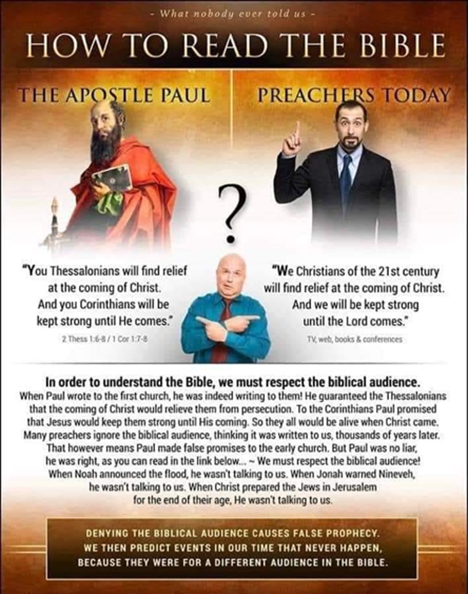Robert Eyton
“Blessed are the meek, for they shall inherit the earth.”—ST MATTHEW 5:5.
The word which is translated meek has acquired for itself a meaning which is, to say the least, unfortunate. A meek man means to many people a tame man, one easily imposed upon. A meek person, from their point of view, is a person who has not much energy, is generally deficient in spirit, and consequently carries the burdens of the family. We count such persons as perhaps useful, as almost on the same level with the camel or the donkey in the animal sphere of existence, useful to carry loads and to expect little in return; but we should hardly say that they were ever likely to inherit the earth, or indeed to inherit anything, except the burdens that their neighbors could manage to thrust on them.
But the meekness of this Beatitude is certainly not mere tameness of nature, mere insensibility, mere want of “go.” It is not the “natural product of a tasteless tree,” it is the Divine outgrowth of a strong natural stock. If we read it “Blessed are the gentle,” we get a better idea of its meaning, only there again the gentleness is that which comes not from want of force, but from a strong and tranquil self-control. Meekness is the result of self-conquest, not of want of fire. It is not a tame insipidity, it is not an amiable flaccid inutility; that is not meekness in the sense of the Beatitude: nor is it the soft, yielding disposition whose cry is, “anything for a quiet life,” that grows into this gentleness. Meekness is a virtue that comes of a strong stock, it must be the outgrowth of a nature that has felt, and felt strongly, and learnt to control its feelings, learnt that real strength lies not merely in the power of letting oneself go, but in the power of holding oneself in. It is from those experiences that the true meekness, the gentleness of the Beatitude is the outcome.
The characteristics of the virtue, whether we call it meekness or gentleness, are something of this kind:—
I. It is willing to bear without retaliation. It is strong enough not to hit back, and that not from contempt but from real self-mastery. It knows that, very often, an injury is not meant, that, e.g., people say cruel things out of an angry feeling, which they do not mean, or false things out of mere idleness. It knows that the temptation to pay them back in kind is an unworthy one; it is strong enough, great enough, not to take refuge in disdain, but to make allowances, to wait, to be silent, to hope that the time will come when the slanderer will answer himself; at any rate, it will not allow itself to add to strife.
So the great model of meekness, our Master and only Saviour, Jesus Christ, comes before us to-day,* meek, and riding on an ass. We understand at once the absence of empty self-assertion. He calls to us, “Learn of Me; for I am meek and lowly in heart,” and teaches thus the lesson of His own gentleness. But no one can study His character and not see that meekness and gentleness are the result of self-control. Strong severity broke forth at times when His soul was moved by the spectacle of those who, under the garb of religion, worked for their own ends. “Woe unto you, scribes and Pharisees, hypocrites, for ye pay tithe of mint and anise and cummin, and have omitted the weightier matters of the law,—judgment, mercy, and faith.” “Ye blind guides, which strain at a gnat, and swallow a camel. Woe unto you, scribes and Pharisees, hypocrites, for ye make clean the outside of the cup and of the platter, but within they are full of extortion and excess.” “Woe unto you, scribes and Pharisees, hypocrites, for ye are like unto whited sepulchers, which indeed appear beautiful outward, but are within full of dead men’s bones, and of all uncleanness.” “Woe unto you, scribes and Pharisees, hypocrites, because ye build the tombs of the prophets, and garnish the sepulchers of the righteous, and say, ‘If we had been in the days of our fathers, we would not have been partakers with them in the blood of the prophets.’ Wherefore, ye be witnesses unto yourselves that ye are the children of them which killed the prophets.” “Ye serpents, ye generation of vipers, how can ye escape the damnation of hell?” This is the language of ideal gentleness,—this withering sarcasm, this stern reprobation!
II. Another characteristic which also proves the claim of meekness to strength is its willingness to subordinate mere personal claims—I mean claims so far as they are merely personal and not official. For a man may be ever so meek, and yet rightly insist on the deference due to his office. We see, e.g., that a judge must act in this way; he may not give away from gentleness anything that belongs to his position. And everyone has his place and his duties, whose claims he cannot allow to be subordinated to his own preferences; he must fill his place and do his duties. So far the gentle man is as strong and firm as anyone.
Nay, he is all the more so because he is not agitated by those merely personal questions which so often obscure official dignity. He shews his strength by thinking nothing of them, ignoring them, putting them on one side; he shews his real dignity not by self-assertion, but by discharging his duty and filling his place. These things he must do, these he may not forego, even if they involve a state which seems like assertion of dignity, he must submit to it; for the service of God demands that he should not forego any of his duties, or of what belongs to them. But all mere personal questions, which weaken and confuse the real issues, he is strong enough, and brave enough, to put on one side. Moses was the meekest of men as far as mere personal questions were concerned, he put them aside at once, he would not look at them; but when Moses is exercising his God-appointed office as leader of his people there is no shrinking and no tameness about him. He gave away nothing that belonged to his duties, or pertained to the exercise of his prerogatives.
The meek man may then come into collision with others, because he does the duties committed to him by God, but the one thing he will not do is to project his own personality, or to cherish petty grievances, from an overbearing sense of his own claims. He is strong enough to ignore all that, strong enough to refuse to regard mere personal injury.
The gentleness, then, that is blessed is the gentleness that bears with provocation and controls irritation and refuses to resent personal injury, while at the same time it is strong and brave in the discharge of its duties. It can say “no,” and stick to it without losing its temper over the matter. It has the power to put on one side mere personal irritations, mere questions of offended dignity; it has the strength to control self, to put God’s cause before its own feeling, to act with the single eye; it presents that combination of firmness with gentleness which is so powerful, if so rare. And surely our own experience will tell us how strong and how blessed a thing is meekness of this kind. How often have we felt the withering power of our own irritability; how often have we grieved over the way in which our own impatience has spoiled our best work. “If only I hadn’t lost my temper,” we say, because we feel the weakness of it. Conversely have we not felt that the real good of our life has come, not from our shrewdness, nor from our power of brain, but out of our self-control? How often have we mourned over the lack of an influence which we felt we should have had if we had been more self-controlled! We feel, above all, in dealing with children the strength of meekness. There is a sovereignty that belongs to an iron will—we all own it and we all hate it: there is another sovereignty that belongs to insolent brutality or to mere violent temper, the sovereignty that creates a solitude, and calls that peace. We hate that still more, and get out of its way if we can. But there is a sovereignty, against which we do not rebel, that belongs to the loving compulsion of those who, having learnt to control themselves, are able to influence others by a word or a look, in a way which is only intelligible to those who can trace the secret of their power. Such power belongs to those into whose hearts something of Christ’s meekness has entered, of whom it may be said in truth, “His gentleness has made them great.” Wherein too lies the power of Christ? Surely in Him we see the strength of meekness, “the omnipotence of gentleness and the gentleness of omnipotence.” The gentle God comes and walks among men, and they are conscious of a force and a power within Him that no Cæsar had ever excited. “As soon as He said I am He, they went backward, and fell to the ground.” There was something in Him unapproached and unapproachable, the moral majesty of gentleness.
And this it is which is always justifying the apparent paradox which tells us that “the meek shall inherit the earth.”
Gentleness does win its way where violence only provokes hostility. Moral power is real power. No doubt for a time it may have to yield to brute force. It is no match immediately for bloodthirsty battalions; but all history and all experience prove that the victory of violence is short-lived and the triumph of gentleness is enduring. Even while gentleness is under the yoke it does not lose its sovereign attributes. None feel its essential enduring superiority more keenly than those who, for a time, overwhelm it by brute force. “It is John the Baptist whom I beheaded,” cries Herod. “Why does he plague me still?” So mere force pays involuntary homage to the moral majesty of the meek and gentle. And surely all our modern experience points in the same direction. The man who is self-controlled, who does not make enemies, who is true and straight, is the man who is felt in our modern life, and will be more felt as the democracy advances, as the power that once belonged to privilege and rank and to being “the son of your father” disappears. The days of the loud-mouthed pretenders are passing away; even fluency of speech is becoming less accepted as a sign of supreme virtue by us slow-speaking Saxons. We are coming to the days when the artificial distinctions of class will cease, when the moral methods of influence will alone have any weight, when “force” will be felt finally to be “no remedy,” and a high position will be only valued for the duties involved in it. It is here, I believe, that our great trial lies—the thing that sifts us. In the movement of men’s minds, much that was once taken for granted has at last become an open question. The thing which is asked is not, “Is it the correct thing to believe this?” but, “What is the moral effect of this or that belief?” “Are Christians showing the spirit of Christ? Do they care for His ideals?” Or have they let themselves fall into the temptation of using His Name and calling upon Him as their leader, while they use methods which He would never have endured? We cannot remember too often that it is by moral methods, and not by physical, nor even, except in a subordinate way, by intellectual, that the Kingdom of God is being set up. The real test of each man and woman who is called upon to act in any public fashion is whether he or she really believes in moral methods, believes in them enough to act on them, believes in them rather than in fraud or trickery or force. The effect of self-discipline, of the gentleness that comes from self-control, can never be really estimated here. We live in a fog; we cannot see clearly what is success and what is failure, nor can we see “the seed growing secretly;” we can only mark quick returns and big results. We live in a hurry. It is hard to collect ourselves for calmness and breadth of view and self-command. We need to remember that strong language does not always cover strong purpose, and that to possess the earth something more is needed than the showy and specious achievements of mere rhetoric. In quiet, unperceived places, in secret strivings after self-discipline, in wrestling with the devils of hasty temper and violent methods, gentleness is established within us, and wherever gentleness is established, thence flows power. How it wins its victories and where it reaches to we do not know; we know not how much we owe to the prayers of the meek.
No; where the upholding grace is won
We dare not ask, nor heaven would tell;
But sure from many a hidden dell,
From many a rural nook unthought of there,
Rises for that proud world the saint’s prevailing prayer.
Yes, the meek do inherit the earth. Let us no longer be deceived and act unconsciously in the belief that violence, brutality, and haste can effect anything lasting. Whatever these things seem to effect, let us be sure that self-control and meekness and gentleness have a power beyond all else. If we would help forward the kingdom of God, let us learn to resist our hasty impulses, to check our inward irritation, to command ourselves so that we may at least do something towards our great lifework, which is to spread the influence of Christ before “the night cometh, when no man can work.”
Eyton, R. (1896). The Benediction on the Meek. In The Beatitudes (Second Edition, pp. 44–53). Kegan Paul, Trench, Trübner & Co. Ltd. (Public Domain)

OnlineSource: They Shall Inherit the Earth (cmfhq.org)





